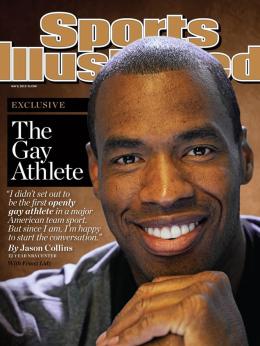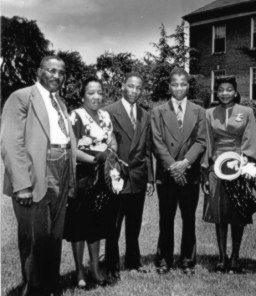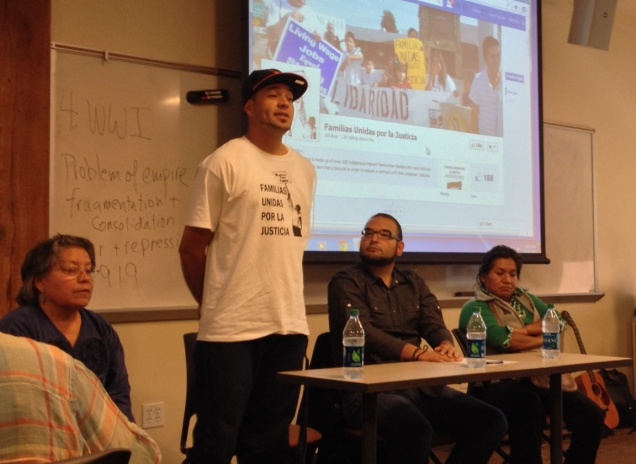Uncategorized
BSB Documentary Reviews
Greetings loyal readers! There are many great documentaries out there, so beginning today I will be posting short reviews in hopes to pique your interest in one that may inspire you, open your mind to something new about this thing called “life.” Most of these films come from “best documentaries” lists, others are low-budget independent films, but all of them have an important story to tell. Now, I’m not saying I’m Gene Siskel or Robert Ebert– these reviews are simply the humble ramblings of a lowly film lover and very amateur filmmaker. Watch the films to form your own opinion so you can discuss the film with me in the comments sections. If you know of a film that should be included I’d love to hear about it; email us at bsberries@gmail.com, or let us know on Twitter or Facebook.
-Scott Hines
Scott Hines is a Director for Blood, Sweat and Berries.
#98 and LGBTQ Tolerance
On Sunday, Jason Collins— a 7-foot tall defensive player for the Brooklyn Nets— made no points in the 11 minutes of game he played against the LA Lakers. But the crowd was cheering for him when his feet hit the court because he walked out as the first openly gay athlete in the history of the NBA, NFL, MLB and NHL.
Collins came out in a Sports Illustrated article written last spring, after finishing the 2012-13 season with the Washington Wizards and becoming a free agent. He was not signed onto another team until hours before the game on Sunday, when he signed a 10-day contract with the Nets.

His presence in that game represents the first step in a major transformation in American professional sports, and shows that more people are becoming tolerant toward members of the LGBTQ community. And that’s a good thing, since they still face discrimination— maybe not with fire hoses and vicious police dogs, but through harassment and abuse in the workplace and the locker room.
Discrimination due to sexual orientation clearly violates human rights and dignity. And no, I’m not talking about gay marriage—I’m talking about thinking less of a person simply because of their sexual orientation or gender identity. Even the Catholic Church, who many know does not condone or support gay marriages, encourages acceptance of the LGBTQ community in the workplace and beyond.
The current trend seems to favor judging people for their character rather than their love interests and gender identity (or lack thereof). I’m happy about the shift; this issue has caused too many suicides and too much unnecessary violence, not to mention too many young people walking around feeling less than human simply because society doesn’t accept parts of them. These people may never reach their full potential if they can not even feel comfortable being themselves.
But we’re all a little scared of things we don’t understand, so the transition will be hard. I remember my senior year in high school when many of my friends, classmates, people who I ate lunch with, and teammates started coming out left and right. Going from having no gay friends to having several in the span of a few weeks left me feeling confused, a little scared, and probably a bit discriminatory—in my head, at least. But I never treated them differently because I knew they were still the same people, though perhaps now with a little less weight on their shoulders.
A little bit of tolerance can totally change a community. At first one or two people came out at my school, and it was all anyone would whisper about in the lunch line or between classes. But after the confusion and fear died down, more people felt comfortable following suit. That’s why I like hearing stories about people like Collins; it shows that tolerance can blossom in a community, and that the violence and negativity associated with sexual orientation could someday fade away.
“America the brave still fears what we don’t know
And God loves all his children, is somehow forgotten.” –Macklemore & Ryan Lewis, “Same Love”
Want to know why Jason Collins chooses to wear #98? Click here.
-Scott Hines
Scott Hines is a Director for Blood, Sweat and Berries.
Why Martin Luther King Jr. Was Just an Ordinary Guy (and Why That’s Extraordinary)
This weekend, the newspapers and internet will be full of articles about Rev. Dr. Martin Luther King Jr. and his impact on civil rights—so I’m not going to talk about his grand achievements because you can read about those elsewhere.
Instead, I’d like to quickly explore why MLK is one of the greatest social justice and human rights advocates of our time.
Is it because he used non-violent methods to protest racism and segregation? Is it because he often sprinkled Bible verses throughout his speeches? Or is it because he gave his “I Have A Dream” speech on my birthday? No, no, and no.
My favorite thing about MLK is that he was just a normal guy. He wasn’t perfect, and he showed us that we don’t have to be perfect to change the world either.
MLK grew up in an average family with a strict minister father and gentle mother. He did well in school—he skipped two grades in high school and was student body president and valedictorian in his seminary. Still, this biography calls him a “popular student… but an unmotivated student” during his first two years at Morehouse College. Though he was a minister’s son he often questioned his faith and his desire to follow his father’s footsteps into the seminary.

These are qualities that plague average human beings—who among us hasn’t questioned our faith or come down with a bad case of “senioritis”? But Dr. King never saw these as barriers; instead, he knew that he was ordinary but that this did not limit him to ordinary actions. His upbringing, which was not free from racism, created his passion for speaking out against a corrupt system—a passion that, as we all know, eventually engulfed the entire country and brought about justice.
If he can do all that, then why can’t I?
In the early days of BSB we faced many challenges, and there were times when I didn’t believe that a group of young adults could run an organization or change how anyone thinks about social justice issues. I often thought about MLK in those early days and how, like me, he was just a normal person with his share of problems; yet he understood that we can feed and share our inherent talents and passions in a way that makes the world a better place. We hope that you will too.
“History will have to record that the greatest tragedy of this period of social transition was not the strident clamor of the bad people, but the appalling silence of the good people.” –Martin Luther King, Jr.
-Scott Hines
Scott Hines is a Director for Blood, Sweat and Berries.
For All The Eaters: Ramon Torres vs. Sakuma Brothers Farms
Editor’s note: This post is a report of a forum that one of our directors, Scott Hines, attended. As the conflict includes highly opposed and biased views, we disclaim that the facts cited below may not be verified.
With his blue jeans and Baltimore Orioles baseball cap, Ramon Torres looks similar to any of the other migrant farm workers I have met through my experiences in BSB. But he is the president of an impressive movement by workers in Washington’s Skagit Valley the likes of which this state has not seen in some time.
The group, called Familias Unidas por la Justicia (Families United for Justice) is made up of about 300 immigrant farm workers fighting for secure contracts, fair wages, and, ultimately, justice and respect from their employer, Sakuma Brothers Farms.

I recently attended a forum at UW Tacoma and pieced together a basic timeline. The strike began on July 11, after a farm worker was fired for complaining about the abuses he and his fellow farm workers face: racial slurs from supervisors, low wages that changed daily, and 10-13 hour workdays with no lunch breaks in inclement weather, among others.
Torres banded together a group of farm workers that refused to work that day, and they eventually were able to meet with the management of Sakuma Brothers Farms and negotiate several demands that included pay increases, retraining for abusive supervisors, and rehiring of the fired worker. Both sides agreed on the demands, but Sakuma Brothers broke them the very next day.
Since then, the farm workers continue to strike off and on as demands are re-negotiated and broken. Torres, who was born in Guadalajara, Mexico and has been in the US for 11 years, says he has never seen a workplace like Sakuma Brothers, where minors who are required to earn $7.81 an hour instead make $4 from a company that has no problem withholding rightfully-earned money from its workers. He recalls noticing that a 13-year-old worker was missing $300 over three weeks, so he asked a company accountant to show him how she calculates the paychecks; after two or three miscalculations he asked her to show him on paper and she miraculously came up with the correct amount.
He then went on to recalculate other workers’ paychecks and recovered over $6,000 for 25-30 workers that the company had withheld over those three weeks.
“I studied in Mexico, and I only finished high school,” Torres said at the forum. “I don’t think I should have to show you how to calculate paychecks.”
It’s that kind of dissonant behavior that may have led to Torres’ dismissal from Sakuma Brothers on September 12 for what the company cited as “personal problems.” He also blames it on the 200-person strike he arranged the previous day in which workers stopped picking for two hours until wages were raised.
“They didn’t like that I made them look bad,” he said.
Torres organized the strike because he believes that the company can afford to pay their workers more, or at least the legal minimum wage. Sakuma Brothers has been hiring guest workers through the federal H-2A program, which “allows agricultural employers who anticipate a shortage of domestic workers to bring nonimmigrant foreign workers to the U.S. to perform agricultural labor or services of a temporary or seasonal nature,” according to the US Department of Labor website.
He claims they pay the guest workers $17 per hour plus the gas it takes for them to commute. He is asking the company to pay workers $12 an hour, but the company claims it would need to pay $6 out of pocket per hour to pay this wage—even though, he says, “they have no problem paying the guest workers $17 an hour.”

Since Torres was fired, he has been leading Familias Unidas and traveling to college campuses around Washington state to spread his mission: to convince people to boycott products that use Sakuma Brothers crops, including Driscolls berries and Haagen-Dazs ice cream, until a legal contract has been made to ensure wage stability.
His group is currently trying to work with grocery stores to not carry these products, but few have agreed because of “complicated repackaging processes” and pre-existing contracts that can last until the end of the year. According to Torres, a few stores have agreed to not sign another contract with these companies until the issue is resolved.
If you want to get involved in this campaign, Torres can send 2-3 members of the committee negotiating with Sakuma Brothers to hold similar forums. He also encourages participation in their picketing and boycotts, especially by young adults and students. As Rosalinda Guillen, Executive Director of Community to Community, said in the forum, “If you eat, if you are an eater, then by God you a part of this movement.”
-Scott
Scott Hines is a Director for Blood, Sweat and Berries.
